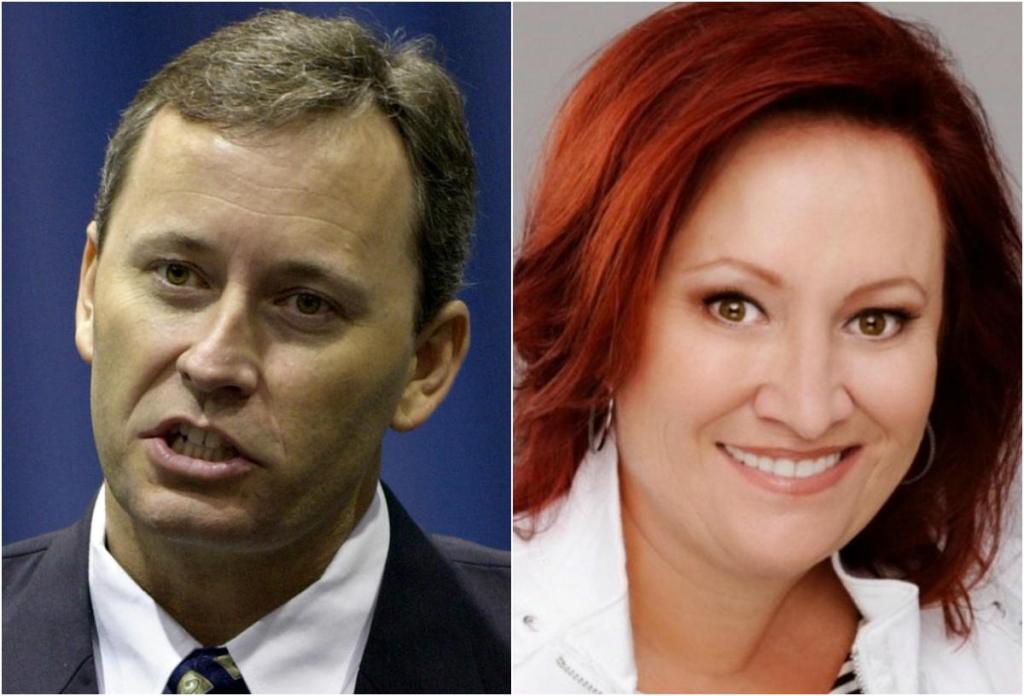Maine’s casino lottery must end
Ordinarily, Question 1 on the Nov. 7 ballot — allowing out-of-state gambling resort developer Shawn Scott to build a new casino wherever he wants in York County — would be laughed at by voters as they checked the “no” box.
After all, here’s a single individual, who profited hugely from bankrolling what was originally the Bangor Raceway’s “racino,” asking voters to give him sole control of what would be Maine’s third state-licensed casino.
In Bangor, Scott parlayed a $1.1 million investment in a failing harness racing track, plus a $1.5 million contribution to the 2003 “racino” ballot campaign, into a $51 million resale to national gambling operator Penn National in 2005 — a 2,000 percent return on investment.
He had luck along the way. There could have been a second “racino” near another harness track in Scarborough, but local voters rejected it while Bangor voters approved.
Scott’s biggest stroke of fortune, however, was that gambling opponents in 2003 concentrated entirely on a casino in Kittery backed by Maine’s Indian tribes, and easily defeating the measure. Dennis Bailey, the former spokesman for Gov. Angus King who led the effort, later admitted the “racino” sneaked in under the radar.
In Scott’s latest venture, bankrolled, by convoluted means, by his Bridge Capital firm based in China, he sheds any pretense he’s helping a racetrack, or anything other than himself. He first attempted to conceal his involvement by routing it through off-shore firms.
One wouldn’t usually worry about a question that would so nakedly enrich a single individual, but Maine has a tangled and often dishonorable history in the Legislature’s attempts to regulate gambling.
To understand why, we go back to the Indian Gaming Regulatory Act, passed without much public notice by Congress in 1988. The law allowed tribes to license casinos on their own land in states where casino gambling already existed, which most assumed to mean Las Vegas and Atlantic City, N.J., the only places casinos then existed.
But courts interpreted the statute to apply anywhere similar games of chance were allowed — including the “Las Vegas nights” for charity periodically sanctioned in many states, including Maine. Thus were born the Foxwoods and Mohegan resorts in Connecticut, licensed to tribes that had no established communities, but were federally recognized.
In Maine, both the Penobscots and Passamaquoddies, among four federally recognized tribes, have occupied the same land for perhaps 10,000 years, and might seem obviously qualified to operate casinos, but they were not successful in gaining the OK.
Courts ruled the federal Indian Land Claims Settlement Act of 1980, which settled tribal territorial claims, required the state’s permission to build a casino, which was denied through the tribal-state commission.
The tribes then took their case to the Legislature, in 1991 proposing a Passamaquoddy-run casino in Calais. The Legislature rejected the bill, though a state senator from Bangor, John Baldacci, was among those voting yes.
The tribes finally, as a last resort, enlisted the voters by proposing the Kittery casino. It was rejected more decisively than any other ballot question concerning gambling.
In response, the Legislature in 2005 enacted a Passamaquoddy proposal to build a racetrack and “racino,” and share profits with the other three tribes. Baldacci, now governor, vetoed the bill, killing it.
Baldacci hadn’t taken a position on casino gambling in the first gubernatorial debate in 2002, then decided, like all the other candidates, that he was against it. His veto of the tribal bill, however, was not his finest hour, and denied an overdue measure of fairness to the tribes.
In a 2010 referendum, a full-fledged casino was narrowly approved for Oxford, leading lawmakers to allow Bangor to add table games to the slot machines authorized earlier. Which brings us back to Shawn Scott and this year’s Question 1.
After the voters, one hopes, defeat Scott’s latest gambit, it’s imperative that the Legislature get back to work and settle the future of casino gambling in Maine.
Many Mainers have voted against all seven earlier ballot questions on legalized gambling, but that ship has sailed and lawmakers need to regain control. Although 2018 is a short session, legislative leaders should appoint a select committee to thrash this out; it’s every bit as important as the marijuana legalization measure a select committee considered this year.
The select committee may not quickly reach agreement, but its recommendations could be considered in a special session, and the attempt must be made. For too long, the Legislature has failed to resolve the gambling question, and until it does, there will be more Shawn Scotts, looking for another jackpot.
Douglas Rooks has covered the State House for 32 years. His biography, “Statesman: George Mitchell and the Art of the Possible,” is now available. Comment is welcomed at: drooks@tds.net
Copy the Story LinkSend questions/comments to the editors.



Success. Please wait for the page to reload. If the page does not reload within 5 seconds, please refresh the page.
Enter your email and password to access comments.
Hi, to comment on stories you must . This profile is in addition to your subscription and website login.
Already have a commenting profile? .
Invalid username/password.
Please check your email to confirm and complete your registration.
Only subscribers are eligible to post comments. Please subscribe or login first for digital access. Here’s why.
Use the form below to reset your password. When you've submitted your account email, we will send an email with a reset code.